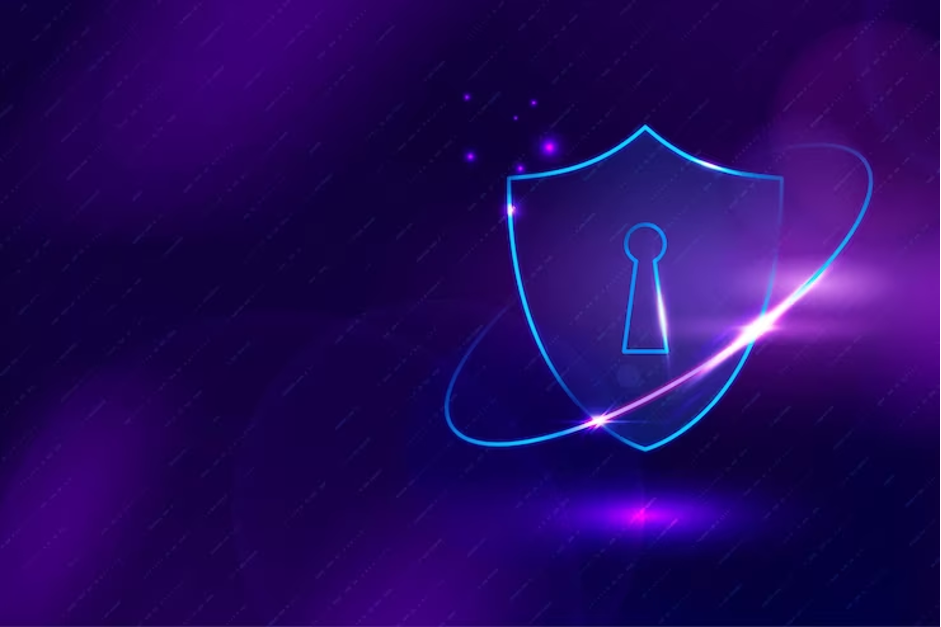In today’s digital era, protecting sensitive patient information is one of the primary responsibilities of healthcare providers. The Health Insurance Portability and Accountability Act (HIPAA) sets forth guidelines and regulations to ensure the privacy and security of patient data. One critical aspect of HIPAA compliance is the use of secure data centers. In this article, we will delve into the essential aspects of HIPAA-compliant data centers and why they are crucial for healthcare organizations.
What is HIPAA?
HIPAA, enacted in 1996, is a federal law establishing standards for protecting and securing protected health information (PHI). Its primary goal is to safeguard patients’ sensitive data, promote the efficient exchange of healthcare information, and enhance the overall quality of healthcare services. HIPAA compliance applies to covered entities, such as healthcare providers, health plans, healthcare clearinghouses, and their business associates who handle PHI.
What Are the HIPAA Compliance Requirements?
As the healthcare industry increasingly relies on information technology, it becomes crucial for healthcare organizations to understand HIPAA compliance requirements and follow them in toto.
HIPAA compliance requirements encompass a range of technical, physical, and administrative safeguards. When it comes to HIPAA compliance requirements for data centers, several crucial measures must be in place. Some of them are as follows:
SSL Certificates & HTTPS
All web-based access to a patient’s protected health information (PHI) must be encrypted and secure to prevent unauthorized connections. Implementing SSL certificates and HTTPS protocols ensures that data transmitted over the network remains confidential.
AES Encryption
Advanced Encryption Standard (AES) is used to encrypt PHI stored on dedicated servers. This robust encryption method adds an extra layer of security, making it challenging for unauthorized individuals to access and decipher sensitive data.
Virtual or Dedicated Private Firewall Services
A secure firewall acts as a barrier between the data center’s network and external threats, preventing unauthorized access to protected files. By implementing virtual or dedicated private firewall services, healthcare organizations can fortify their defences and enhance the security of PHI.
Remote VPN Access
Authorized individuals with proper credentials should be able to access the protected network using a remote computer. Virtual Private Network (VPN) technology establishes an encrypted connection, ensuring secure remote access while maintaining the confidentiality of patient data.
Disaster Recovery
A well-documented backup and recovery plan is crucial in case of lost PHI or server malfunction. A comprehensive disaster recovery strategy ensures that data can be restored promptly and efficiently. This minimizes the impact of potential data loss and ensuring continuity of operations.
Redundant, Isolated, and Secure Database and Web Servers
Data centers must employ redundant, isolated, and secure database and web servers. Redundancy ensures high availability and minimizes the risk of service interruptions. Isolation prevents unauthorized access to sensitive information, while robust security measures protect against data breaches.
High-Speed Connection and Versatile Hardware
Data centers should have a high-speed connection and utilize hardware capable of running various software and applications. This ensures efficient communication with multiple types of devices while maintaining the integrity and security of PHI.
Separate Test Server
A separate test server is essential for performing tests, updates, and patches without affecting the live environment. This segregation prevents unintended consequences that could compromise the security and stability of the production environment.
Physical Security
HIPAA mandates the implementation of controls to prevent unauthorized physical access to data centers where PHI is stored. This includes secure access controls, video surveillance, alarm systems, and environmental controls to protect against fire and other disasters.
Employee Training and Awareness
Data centers must ensure their staff members are trained on HIPAA regulations and specific security protocols. Regular training sessions and ongoing monitoring are essential to maintain a culture of compliance.
How to Assess HIPAA-Compliant Data Centers
When choosing a third-party colocation or cloud service provider, a healthcare organization must ensure that the data center is HIPAA compliant. In order to find out whether a data center is HIPAA compliant, you must ask for the vendor’s most recent HIPAA report on compliance (HROC). This is a comprehensive assessment report by an independent auditor who determines an organization’s compliance with HIPAA regulations. The audit examines various aspects, including security controls, policies and procedures, risk management, and employee training. Organizations that undergo a HIPAA audit and successfully demonstrate compliance receive a Report on Compliance. This serves as evidence of their commitment to protecting patient data.
AiNET offers secure data hosting services. Our data centers are HIPAA compliant, and we conduct regular risk assessments to keep the PHI safe and protected. We offer colocation service as well as private cloud hosting. Let us know your requirements, and we will help you plan a tailor-made IT infrastructure.
As the threat landscape continues to evolve, businesses are under increasing pressure to protect their networks and sensitive data. One solution gaining popularity is Firewall as a Service (FWaaS).
FWaaS provides a cloud-based firewall to protect against unauthorized access and malicious activity. Thanks to its extensive benefits, the FWaaS market is continually growing and is expected to reach USD 8.28 billion by 2029.

This blog post will explore FWaaS and how it can benefit modern businesses of all sizes.
What is Firewall as a Service (FWaaS)?
Firewall as a Service (FWaaS) is a cloud-based security solution that provides virtual firewalls to protect networks and applications. It involves outsourcing firewall management to a third-party provider who delivers the firewall functionality via a cloud-based subscription model.
With FWaaS, businesses can unlock flexibility to scale up or down their security needs based on changing requirements. It also offers real-time threat intelligence and automatic updates, ensuring businesses have up-to-date protection against emerging threats.
Traditional Firewalls vs. FWaaS vs. NGFWs
| Point of Difference | Traditional Firewalls | Firewall as a Service (FWaaS) | Next-Generation Firewalls (NGFWs) |
| Definition | A security system that monitors and filters incoming and outgoing traffic based on predetermined rules. | A firewall as a service is cloud-based, firewall managed, and maintained by a third-party provider. | Next-Generation Firewalls combine traditional firewall technology with additional features such as intrusion prevention, application control, and advanced threat detection. |
| Deployment | On-premises | Cloud-based | Can be either on-premises or cloud-based |
| Security functions | Basic packet filtering | Advanced security functions such as IDS/IPS, VPN, application control | Advanced security functions with an emphasis on application control and threat intelligence |
| Scalability | Limited scalability | High scalability due to cloud-based deployment | Highly scalable with support for distributed environments |
| Maintenance | Requires manual updates and patches | The service provider manages updates and patches | Automated updates and patches with real-time threat intelligence |
| Cost | High upfront cost | Subscription-based pricing model | High initial cost with ongoing maintenance fees |
| Management | Requires dedicated IT staff for management | The service provider handles the management | Advanced management and reporting capabilities with centralized control |
Why Do Companies Need FWaaS?
Businesses continue to embrace cloud infrastructure providers such as AiNET. With this technological shift comes the need for an advanced and modern security solution. This is when FWaaS comes into action to add that protection element and take data security to the next level.
Benefits of Using a Cloud Firewall/FWaaS
FWaaS is ideal for companies looking for a more cost-effective, efficient, and secure way to manage their firewall infrastructure. Some of the benefits that FWaaS provides for businesses include, but are not limited to
- FWaaS identifies, filters, and blocks malicious traffic such as malware and bad bot activity. Hence, the network choke points are not created.
- FWaaS or cloud firewalls allow for quick and easy integration with cloud infrastructure.
- Cloud firewalls provide businesses with scaling options; scale up or down to handle more traffic more efficiently.
AiNET — Your Access to a Secure Cloud Network!
The digital landscape is filled with malware and other security threats. To cope with this issue, AiNET allows businesses to scale, agile, and upgrade their data infrastructure on an end-to-end protected cloud.
With our unmatched suite of cloud solutions, companies can access everything from public, private, hybrid cloud storage, or dedicated data centers, in one place — with enterprise-class security protocols!
The threat of Distributed Denial of Service (DDoS) attacks continues to be a major issue faced by organizations of all sizes. With the advancement of AI and machine learning, DDoS attacks are becoming more sophisticated, causing the loss of millions of dollars.
A Corero survey shows about 70% of the responding organizations experience 20 to 50 DDoS attacks a month. 91% of respondents to the survey said DDoS attacks caused damage of up to $50,000 per attack.
It is practically impossible to prevent all DDoS attacks. No matter how robust security protocols you employ, there’s always a chance that your website will have to face such attacks. However, you can certainly take a few steps to minimize the threat.
What Is a DDoS Attack?
In a DDoS attack, the hackers overwhelm a website or online service with a large amount of traffic from multiple sources. As a result, it becomes unavailable to legitimate users.
The attackers use a network of compromised computers, also called the botnet, to flood the target website with more traffic than it can handle. It can slow down the website or completely crash it for several hours, resulting in a loss of revenue and customer trust.
How to Minimize the Threat of DDoS Attacks?
Here are 5 tips to help you keep your website protected against DDoS attacks.
Monitor network traffic:
Monitor your network traffic to know your website’s regular traffic pattern and spot any unusual activity. It will help you prevent a DDoS attack before it takes full swing. It will require 24/7 monitoring to detect a possible attack and act quickly.
Strengthen network security:
Create a resilient network security system by adopting multi-level protection strategies. Use anti-spam, content filtering, firewalls, load balancing, and other available tools to mitigate the threat of a DDoS attack.
Keep a Denial-of-Service response plan handy:
Despite having the most robust security protocol, a DDoS attack can still take place. Make sure you have a clear response plan. It will help you bounce back promptly with minimal damage.
The plan must lay out the entire response process and outline how to maintain business operations after such attacks happen. Your team members must know their roles during such an attack so that they do not lose focus.
Move to the private cloud:
Moving your IT infrastructure to a private cloud can be a clever move. Cloud service providers deploy the latest cyber security protocol with the best firewalls and monitoring software. It also offers more scalability and bandwidth than on-premises resources.
Even if a cloud security breach occurs, the recovery becomes much easier with the cloud due to its distributed nature. If migrating your entire IT system to the cloud is not feasible, you may also consider a hybrid model.
Choose your service providers carefully:
Choose the service providers that deploy state-of-the-art security measures. Ensure that the internet connection you use doesn’t have any vulnerabilities. The same applies to your cloud service provider. Review the past records of a cloud service provider before entering into a contract.
It is best to go for a service-providing company where you can find all the necessary services under one umbrella. When your system is powered by an internet connection, data centers, and cloud storage offered by the same company, you get a multitude of benefits. It strengthens security, brings transparency, and eliminates the scope of finger-pointing.
AiNET offers all the services you need to grow your business in this fast-paced digital world. Get in touch with us, and we will help you create a secure IT infrastructure.
To start with an important question, are you doing everything in your power to protect your data from losing? If you answered no, it is best to start doing so since hackers are becoming more and more smart and finding ways to break in. However, it is also my duty to tell you your data loss doesn’t only come from hackers and low cybersecurity. There are many ways one can lose their data, and today we will list 4 of the most common reasons.
First and foremost, what is data loss?
Data loss, as the name states, is when you lose your data or when it becomes destroyed or deleted, no longer allowing you to read to it. Data loss doesn’t always happen because you weren’t paying attention. Sometimes your data gets destroyed by accident, and some other times… yes, it’s your fault. Data loss is and should be a very important topic to keep in mind. For companies and organizations, losing data can cause a lot more damage than you can think of, given they include a lot of sensitive information. Some of this information can be:
- Client credit card information
- Addresses
- Telephone numbers
- Account details
- Personal information
- Information about the company
If any of this information falls into the wrong hands, the reputation of the entire company will be damaged along with its future. So you understand why data loss can be considered a serious topic.
How can one lose data, even after protecting it entirely with passwords?
1. You can accidentally delete them.

Yes, this has happened and will happen if you are not so careful. (Do not ask me how I know). In fact, 29% of the time, people lose their data due to human error. I mean, no human is perfect and sometimes lack concentration so is it really a surprise that we make mistakes like these sometimes? However, the real trouble begins when people mistakenly delete their data… with no backup whatsoever. This why it is always important to back your data up any chance you get.
2- Viruses might take over.

We all know what viruses are, right? a program that replicates in one’s device and “infects” it similarly to viruses in our bodies. these viruses can take complete control over your programs and data and can even affect the functioning of your device. After being replicated, viruses can block your entrance to your data, resulting in data loss. Do not be afraid, there is a lot of antivirus software which is capable of solving these problems if kept up to date.
3- Natural disasters

Now this one is completely out of your hands, but they are also very rare. Natural disasters include earthquakes, tornados, lightnings, floods, hurricanes, natural fires and more! You can always minimize the risk even tho natural disasters can have a great impact not only on your devices where information is stored, but also your entire business.
Sure, I mentioned before those natural disasters are not in your hands, however, what’s really in your hands is backing up the data. You never know when disaster might hit, but you can always be ready for it.
4- Thieves and hackers.

Laptops, phones, hard disks and many more devices get stolen almost every day. No matter how securely you protect your devices, thieves can take it out of your hands without your notice. What’s important to remember here is that sometimes the files and folders found in your devices can have much more value than the laptop itself, therefore it is important to always be aware. Think about it, you can replace your laptop, your phone, or any type of device you use, but can you replace sensitive and crucial data?
Want to learn more? We are waiting for you to visit us on AiNET and enjoy our blogs. See you there!




